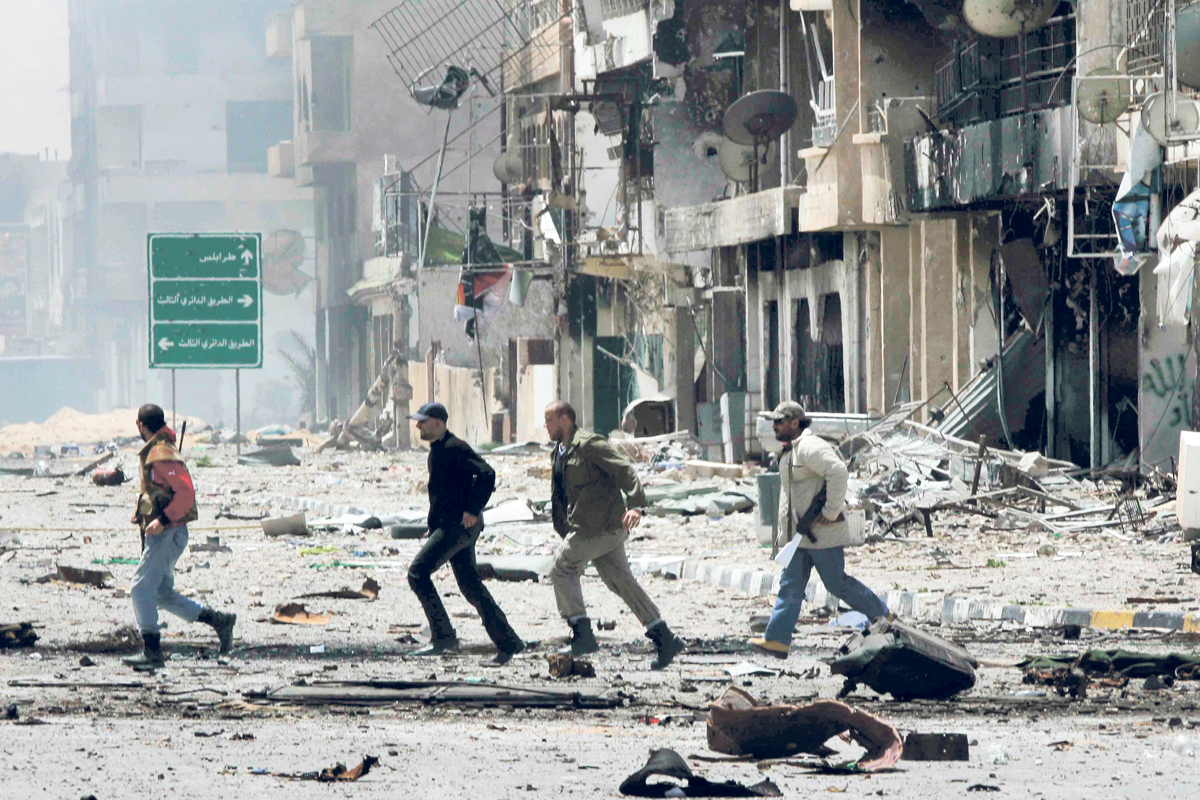Organization pulls scholarship funds from Libyan USU students
USU student Abeer Alakari is one of 2,500 Libyan students attending college in North America on a Libyan scholarship that is now stuck in diplomatic financial limbo.
Caught between a civil war in her home country and international sanctions on Libya’s leader, Alakari and all other Libyan students were told there will be no money available through their scholarship program after May 31.
“Just thinking about that right now, I am completely paralyzed about what I’m going to do,” Alakari said.
Alakari’s scholarship, funded by the Libyan government, pays for tuition, living expenses and medical insurance. She has no idea whether there will be money to support her and her family after next month.
Alakari has an F-1 visa and therefore is allowed to work in the U.S., but her husband, an F-2 visa holder, cannot. She was told there is no way a person with an F-2 visa can work.
“I would really appreciate it if the U.S. government would take a step – like, to do humanitarian actions – for the families who are living in the U.S.,” she said, “(and) give permission for F-2 visas to work.”
The United States froze $30 billion of Libyan assets at the end of February, less than two weeks after the uprising in Libya started and leader Moammar Gadhafi retaliated violently against the rebels. The United Nations and European Union also passed similar sanctions.
This doubtlessly tightened the financial reins of Gadhafi’s regime, but it also indirectly affected the Libyan students studying at universities and colleges in the United States and Canada. Because of safety risks and no-fly zone, going back to Libya is not an option for Alakari and the other Libyan students.
To Alakari, an even better option would be to unfreeze the Libyan funds. That money belongs to the Libyan people, not Gadhafi, she said. Freezing Libyan scholarships is a victory for Gadhafi because his actions in the country are also controlling the Libyans who live abroad.
“It doesn’t make sense to me that the money is frozen, you are not allowed to work, and you cannot go back now,” she said.
Alakari is a graduate student studying second language teaching. Even though she can work, she does not expect to be able to do much because she has a family to take care of, classes to finish and a thesis to write.
“Imagine the frustration that (the students) have now, because they know that there won’t be any money after May,” Alakari said. “You know, I feel guilty talking about money when there are people dying in my country, but I want to explain this situation.”
For these students, the problem lies not only in how to get financial help, but where it comes from. The scholarship does not come from the university.
The Canadian Bureau for International Education (CBIE) administers the Libyan students’ sponsorships in Canada and the U.S. on behalf of the Ministry of Education and Scientific Research (MOESR), and all actions are done with Libyan money.
In an April 20 e-mail, CBIE director of U.S. operations Kemale Pinar said, “CBIE recently obtained a license from the U.S. Office of Foreign Assets Control to allow CBIE to issue monthly living allowance payments to students and tuition payments to insatitutions.”
However, in a message to Libyan students posted April 21, on CBIE’s U.S. website, it states there are “sanction-related technical difficulties” in regards to future tuition payments.
“CBIE is working diligently in cooperation with the MOESR and the financial institutions to ensure these technical difficulties are addressed,” the message states.
It also states there are no funds from the Libyan government to cover monthly living allowances after May, and there is not a sufficient amount of money to pay for health coverage at this time.
There are three Libyan students at USU, including Alakari. The Office of International Students and Scholars at the university said they are doing all they can to assist the Libyan students and their families with housing and much needed items, but there is only so much they can do.
Vice President for Student Services James Morales said the university has to work with these students on a case-by-case basis because each has a different graduation date and personal circumstances, and he is currently working with one of the students.
For now, the best Alakari can do is wait for change as she reads reports on the news about the violence in Libya, and sees familiar faces while watching coverage of the Libyan conflict on television news.
“They say that ‘We are safe,’ and ‘We are good,’ but you know I don’t trust that anymore because they cannot talk and I sense that,” Alakari said of phone calls to her family. “You can know when they are really safe and when they are just telling you that to make you feel more comfortable.”
– la.stewart@aggiemail.usu.edu

